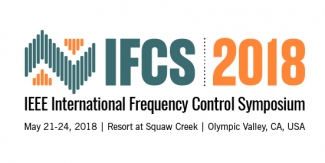JILA Fellow Jun Ye was named the 2018 winner of the I. I. Rabi Award by the IEEE Frequency Control Symposium. Ye was recognized “for the development of stabile, reproducible, and accurate atomic clocks based on optical lattices, and the use of those clocks to probe fundamental atomic interactions and quantum many-body systems.”
The award recognizes Ye’s sustained leadership in perfecting optical lattice atomic clocks as the most accurate and precise timekeepers in the world, and Ye’s continual pioneering of new physics, such as his recent first-in-the-world Fermi degenerate gas atomic clock using quantum many-body physical principles to dramatically improve clock accuracy and stability.
The IEEE Frequency Control Symposium is the world’s largest and most important scientific society dealing with atomic timekeeping and related topics. The Rabi Award is the Symposium’s highest award for scientific research in atomic timekeeping. Award namesake Isidor Rabi was the 1944 Nobel Physics Laureate for his invention of the resonance technique in molecular beams. In 1945, Rabi was the first to suggest this method could be used to make atomic clocks, and indeed Rabi’s method was adopted for the best atomic clocks for several decades. More recently, Ye and other scientists perfected the new and more precise method of optical lattice atomic clocks.
Previous Rabi Award winners at JILA have included JILA Fellows Jan Hall and Judah Levine.
The award will be formally presented to Ye at the International Frequency Control Symposium in Squaw Creek, CA, May 21-24, 2018.
Congratulations to Jun!





